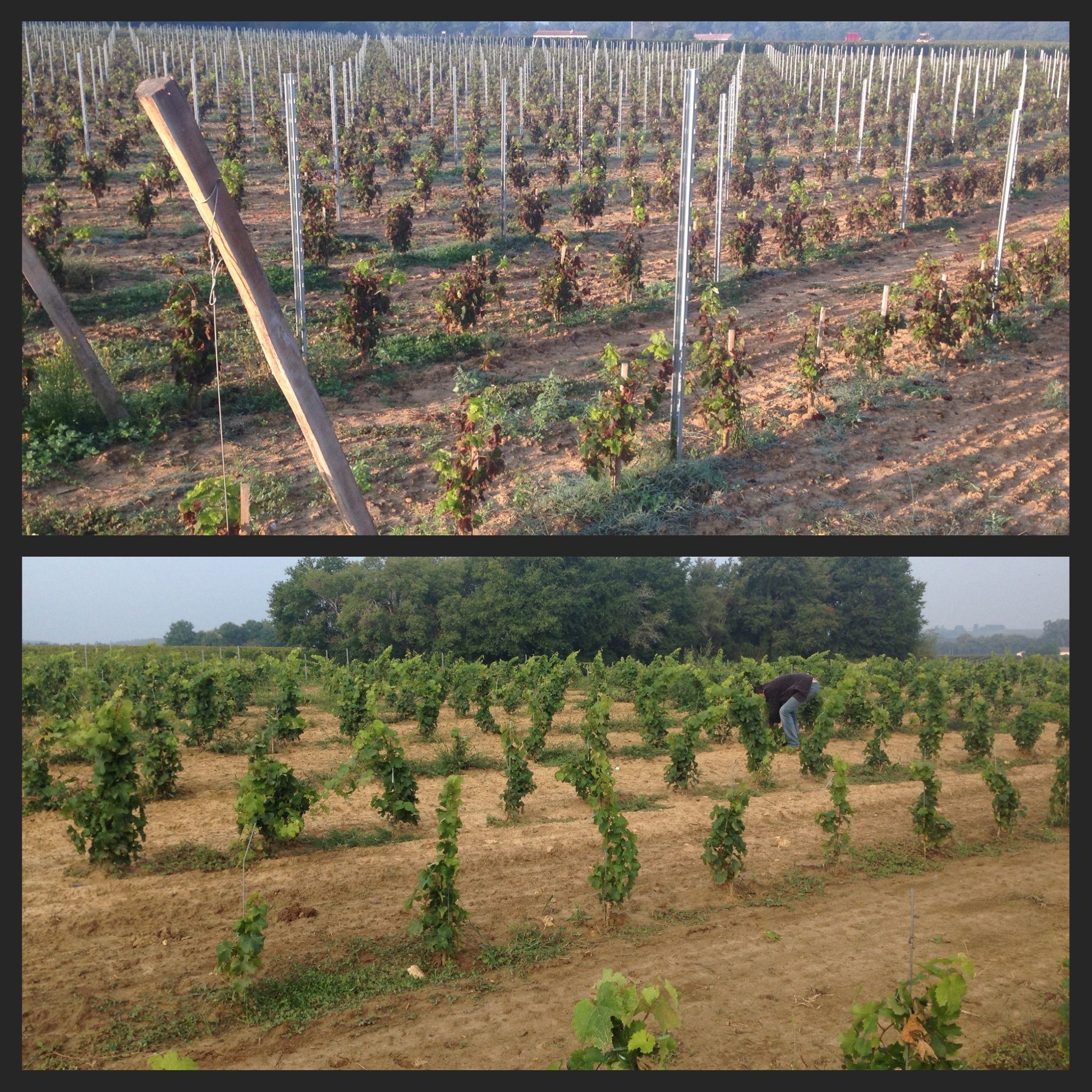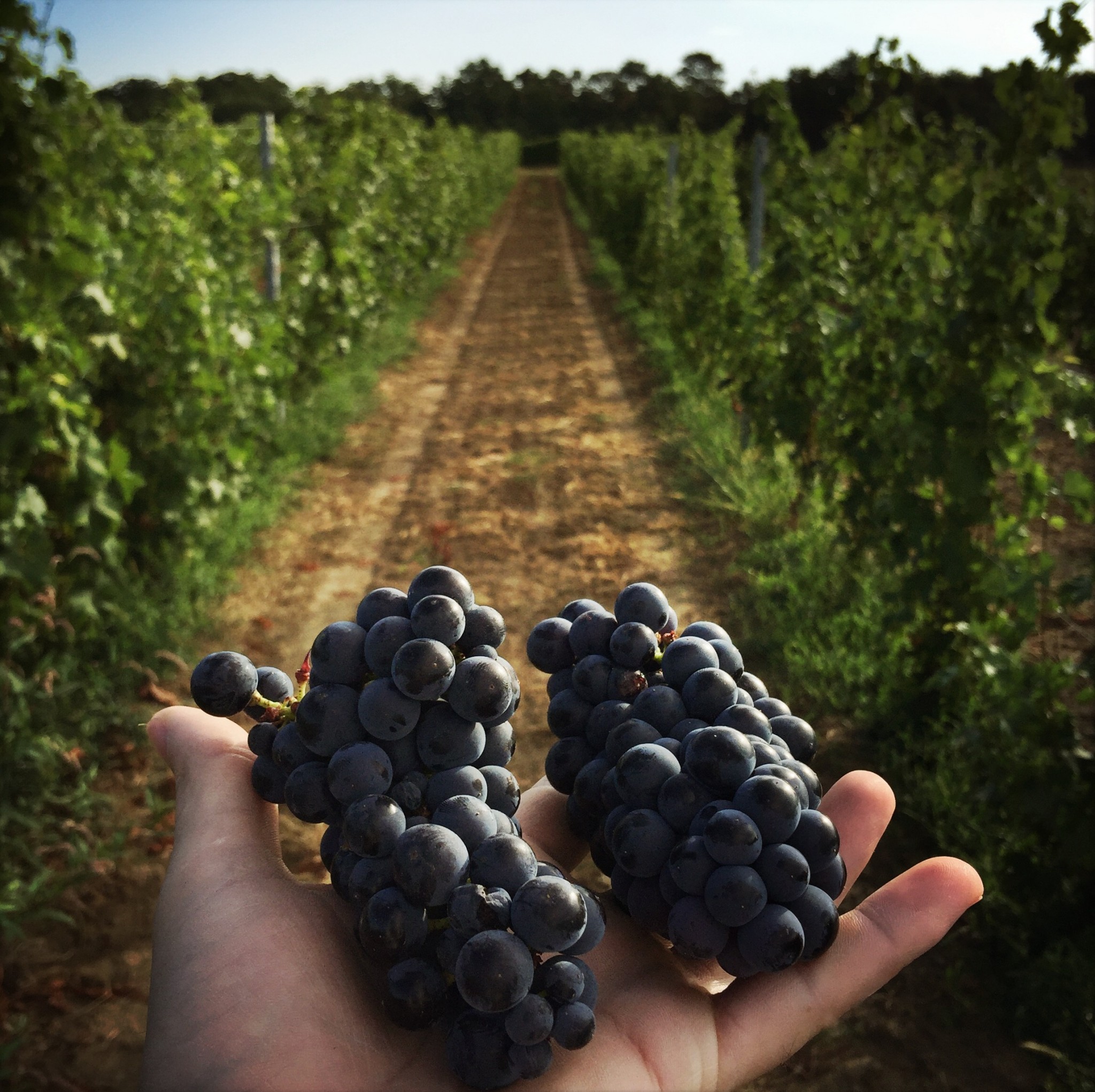Since June 2014, we have planted 3 hectares with two different resistant varietals in the heart of Entre-Deux-Mers: 1.3 hectares of Cal 604, a white varietal from Germany, and 1.7 hectares of Cabernet Jura, a red varietal from Switzerland.
This full-field experiment has two main objectives:
– In the vineyard: to reduce the amount of spraying by 50% or more per growing cycle and to find out whether these varietals can adapt themselves to the oceanic climate and the growing techniques specific to Bordeaux.
– In the winemaking and commercialization: to produce quality wines and encourage our clients and distributors to discover them, to prove that it is possible to distribute and sell these new varietals in the long-term perspective.
First year report
This first year ended with only one phytosanitary treatment made on the resistant varietal plots, against four treatments made on the Bordeaux traditional varietal rows. By the end of the season, no illness was seen on the leaves of the resistant varietal plots, contrary to the traditional varietals that were affected with mildew and black rot. Underneath, two pictures, taken on the 2nd of October, are showing this high difference of disease resistance.
This first year of experimentation was also a good opportunity to meet many researchers, agricultural engineers, organic or traditional winemakers from various regions, who have already planted resistant varietals or thinking to make the move. We all come up with the same observation: today’s viticulture, whatever system is chosen, needs new solutions to reduce the frequency of sprayings. The choice of resistant varietals helps us to work a plant material that is less susceptible to fungal diseases and helps building more flexible itineraries. Numbers of journalists have shown lots of interest in these resistant varietals both technical publications, such as: Réussir Vigne, La Vigne, Mon Viti, as well as more general publications, such as : the RVF, Decanter, Terres de Vins, Wine Spectator, etc.
Second year : 5 / 0
Mid- season of this second year of plantation. Despite a high disease pressure year, we have yet made no spraying on our resistant varietal plots, against five on the traditional plots. However, we plan to apply one sulfur/copper treatment over the coming weeks, probably the only one of the season in order to reduce the fungi populations and to avoid the development of more virulent strain.
Our work on resistant varietals takes place in parallel with other investments and commitments in our vineyards: Mildew program led by the Chamber of Agriculture, the agricultural Dephy program led by the Ministry of Agriculture, technical training of our team, investments in new equipments, mechanical weeding, mapping our vineyards and the nearby buildings/houses, hedge plantations, etc.
All these changes will lead to better efficiency and the reduction of spraying but also a better protection of our team and of our neighbourhood.
We work for a sustainable, responsible and progressive farming.



